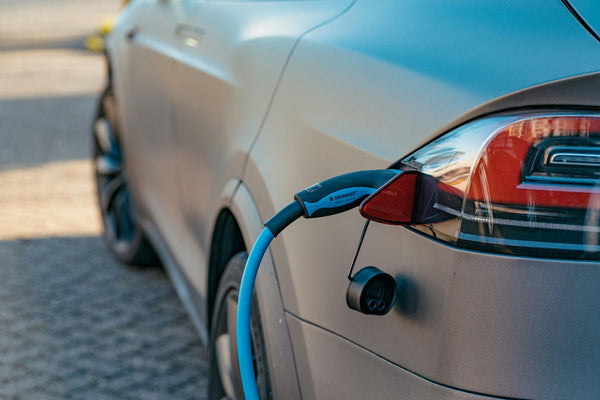
EV Myths - Fact or Fiction
Stopping Electric Car Myths with the Facts
Electric vehicles (EVs) are becoming increasingly popular as a cleaner alternative to traditional gasoline-powered cars. However, misconceptions persist, casting doubts on their feasibility and benefits. Let's debunk these EV myths and highlight the truth about EVs.
The Rise of Electric Vehicles
In recent years, electric vehicles have surged in popularity due to their environmental and economic advantages. Governments and individuals are turning to EVs to reduce carbon emissions and dependence on fossil fuels. Technological advancements and better infrastructure are making EVs more practical and affordable for everyday use. This shift is driven by the desire to combat climate change and supported by various government incentives and regulations.
Myth 1: New Electric Vehicles Are Too Expensive
Many believe new electric vehicle upfront costs are too expensive, but considering the total cost of ownership (TCO) reveals a different story. While EVs might have a higher upfront price, government incentives, tax credits, and rebates can significantly reduce this initial cost. Smart charging can also be used which allows for charging from the national power grid at off-peak times to reduce the cost to a homeowner when the energy demand is lower. Over time, EVs save money through lower running costs and less maintenance. Electric motors are more efficient than internal combustion engines, leading to reduced fuel costs. Charging an EV, whether at home or at public stations, is typically cheaper than refuelling with gasoline or diesel.
Read more about the cost to charge your electric vehicle here
Myth 2: Electric Vehicle Batteries Don't Last Long
Contrary to persistent myths, EV batteries, combined with regenerative braking, are designed for longevity. Most manufacturers offer an 8-year warranty on batteries, and many batteries last 10-15 years or up to 250,000 miles. Advances in battery technology continue to improve their durability and efficiency. Even after their use in vehicles, EV batteries can serve as energy storage units, extending their life and contributing to sustainable energy solutions.

Electric vehicles can handle winding roads with ease. But how far can they really go?
Myth 3: Electric Vehicles Have Limited Range
The range of EVs has significantly improved, addressing concerns about limited range. Most EVs now offer an average range between 200-300 miles, which is more than sufficient for daily commutes and long-distance travel. Public charging infrastructure is expanding rapidly, with more ultra-rapid chargers available, reducing charging times and alleviating range anxiety. For instance, Tesla's Supercharger network provides fast and convenient charging options, making EVs suitable for long journeys.
Myth 4: Electric Vehicles Are Not Good for the Environment
EVs offer significant environmental benefits over conventional petrol or diesel vehicles. They produce fewer carbon emissions and help reduce air pollution, especially in urban areas. As the electricity grid becomes greener, with more renewable energy sources like wind and solar, the environmental impact of EVs continues to decrease. Moreover, the entire lifecycle of EVs—from production to disposal—is becoming more sustainable, with ongoing improvements in battery recycling and resource management, helping consumers to improve their carbon footprint.

Skip the pump and go electric. Electric cars are better for the planet and your wallet.
Comparing Emissions: Electric vs. Diesel Cars
EVs produce zero tailpipe emissions, significantly reducing air pollution and greenhouse gas emissions compared to diesel cars. While the electricity used to charge EVs can come from fossil fuels, overall emissions are still lower than those from diesel vehicles. As the electricity generation sector increasingly relies on renewable sources, the environmental benefits of EVs will continue to grow.
Common Questions Volta EV Are Asked
Currently, the congestion charge zone (CCZ) exempts owners of electric cars from paying charges. This exemption, known as the 'cleaner vehicle discount', applies to vehicles with CO2 emissions of less than 75g/km and a minimum 20-mile zero-emission range. Starting from October 25th, 2021, only battery-electric and hydrogen fuel cell cars will be eligible for this exemption, and hybrid cars will no longer qualify.
Electric cars are currently exempt from road tax due to their environmental impact. However, as electric vehicles become more common, this exemption may change. The number of electric cars on UK roads is increasing. From April 1, 2025, drivers of electric vehicles will be required to pay Vehicle Excise Duty (VED), also known as road tax. This change was announced by the Government in the 2022 Autumn Budget.
Due to the introduction of new petrol and new hybrid car bans arriving in 2030 and 2035 respectively, it is inevitable that the sale of new electric vehicles will take over the sale volume of new petrol and diesel cars. This is an electric car “myth” that cannot be stopped as it is supported by government law changes.
The Truth About Electric Cars
Electric vehicles are a viable and sustainable alternative to traditional gasoline-powered cars. They offer long-term cost savings, improved battery life, adequate range, and significant environmental benefits. As technology and infrastructure advance, EVs will become even more accessible and advantageous, dispelling common EV myths and encouraging wider adoption.

